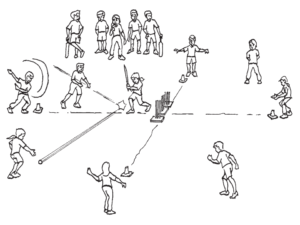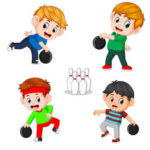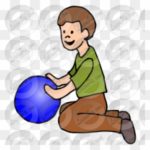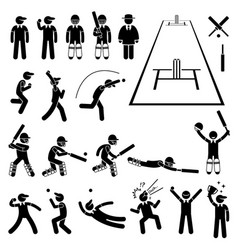
by Neetu | Jun 11, 2020 | Sports
Aim
Practice fielding skills
Equipment Required
- 2 ball
- 10 cones & 2 stumps (10-14 per group)
CATCHING
- Feet shoulder-width apart, knees bent
- Keep head still, eyes on the ball
- Use 2 hands to create a large catching area
- Fingers point up, down or to the side
- Give with the ball
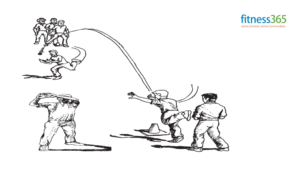
THROWING
- Hold the ball with fingers across the seam
- Start side on and finish front on to the target
- Keep elbow above the shoulder and wrist
- outside elbow during the throw
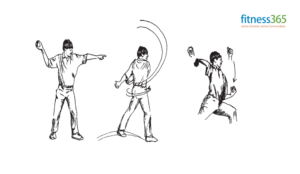
DEFENSIVE FIELDING
- Always attempt to gather the ball with the hands
- The body is the second line of defense
- Watch the ball into the hands
- Bend hips and knees as low as possible
ATTACKING FIELDING
- Back foot right angles to the ball
- Low body weight
- Head in line with the ball, watch the ball into the hands

by Santosh | Jun 11, 2020 | Fitness Activity
Movement skills/concepts
Rolling along a long axis, body control, space awareness and relationships (rolling with a partner).
Set-up
Mats. Children are spaced freely on a wooden floor or grass surface, sharing a mat with a partner.
Activity
Children do an individual log roll:
- lie on your back, stretched out, with your arms above your head and your hands clasped then, with a long, stiff body, roll from back to front to back
- do a log roll, one way and then the other
- do a log roll without letting your arms and legs touch the mat
Can you see …?
- maintaining a long body position
You could ask …
What do you need to do to keep you arms and legs off the ground when you are log rolling?
Variations
Log roll relay: In groups of 6, half are the rollers and the other half are the leapers. The two groups stand at opposite ends of a mat. On a signal, rollers (spaced apart) start log rolling down the mat. Leapers leap over the approaching rolling logs.
When rollers reach the end of the mat, the rollers become the leapers and the leapers become the rollers.
COOL DOWN/ CLOSURE
Review Skill/Activity, stretching, and questions.
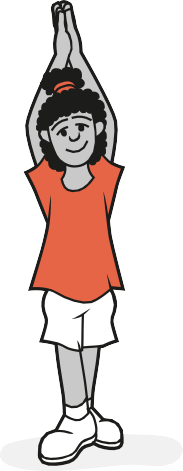
by Santosh | Jun 11, 2020 | Fitness Activity
Movement skills/concepts
Turning around a long axis, space awareness, body control, and time and energy.
Set-up
Music. Children are spread out in a general space, on a floor or hard surface that is easy to turn on.
Activity
On a signal, rotate or spin around:
- on your bottom (hands, no hands)
- on your stomach
- on your back
- tall like a flagpole
- like a screwdriver turning a screw
- like a washing machine
- like a revolving door
- to ‘tell the time’ (e.g. jump and turn to 3 o’clock)
Standing on two feet, jump with a straight body and make: a quarter (90 degrees) turn; a half (180 degrees) turn; a three-quarter (270 degrees) turn; and a full (360 degrees) turn.
Can you see …?
- change of focal point
- turning tall
- balance
- use of arms and legs to control turn
You could ask …
How does extending/moving your legs out affect your turn? What happens when you tuck/hold your body in close?
Variations
In–out game: One child is the leader making the calls. On a call of ‘Out’, children stand and turn with their hands out like a clothes line. On a call of ‘In’, they bring their hands in and spin like a ballet dancer. On a call of ‘In–out–in–out’, those who make a mistake move to the side of the area but continue the activity. The game continues until one child is left in the middle. Change leaders and repeat activity.
COOL DOWN/ CLOSURE
Review Skill/Activity, stretching, and questions.
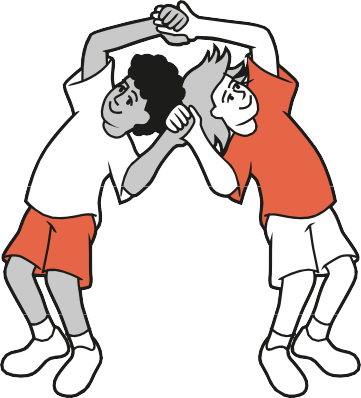
by Santosh | Jun 11, 2020 | Fitness Activity
Movement skills/concepts
Discovering swinging, space awareness and relationships (with others).
Set-up
Suitable music.
Children are spread out in a defined space in a grass or hard area.
Activity
Children discover swinging.
- Which parts of your body can you swing?
- Can you swing side to side, backwards and forwards, in circles and figures of 8?
- Who can swing high, medium and low?
- Can you swing fast, slow, increasing/decreasing in speed?
- Who can make different shapes or patterns with their swing?
- Show me an animal that
- Can you swing when kneeling, lying, sitting?
- Show me how you swing to
- Join one hand with a partner and see how many ways you can swing your joined
- How else can you swing in pairs? Try washing the
Can you see …?
- relaxed swinging
- rhythmical movements
You could ask …
Which way of swinging did you enjoy the most?
How many different ways did you swing your body parts?
Variations
Create a sequence: Make up a swinging sequence.
COOL DOWN/ CLOSURE
Review Skill/Activity, stretching, and questions.
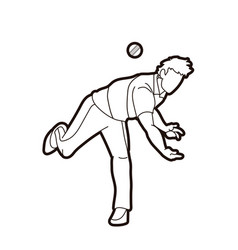
by Neetu | Jun 11, 2020 | Sports
Aim
Practice bowling skills
Equipment Required
- 3 bats
- 1 ball
- 4 markers and 3 stumps
Play Area Set-Up
- The 3 sets of stumps are positioned to face the four directions of bowling
- The bowling team has 4 bowlers (placed 1 on each marker) and 2 fielders
Activity Description
- The batting team bat one at a time
- When the batter hits the ball, they must run around the marker which the bowler delivered the ball from and return to the batting position (scoring one run)
- The ball is returned by the fielder to any of the bowlers who may bowl immediately, whether the batters the batter has returned or not
- The batters may be ‘out’ Bowled or Caught only
- Teams change over when all batters have been dismissed
- Team scoring the most runs wins
Key Teaching Points: Encourage teams to cheer for teammates. Highlight the spirit of cricket by explaining that you should not clap for opposition’s mistakes
